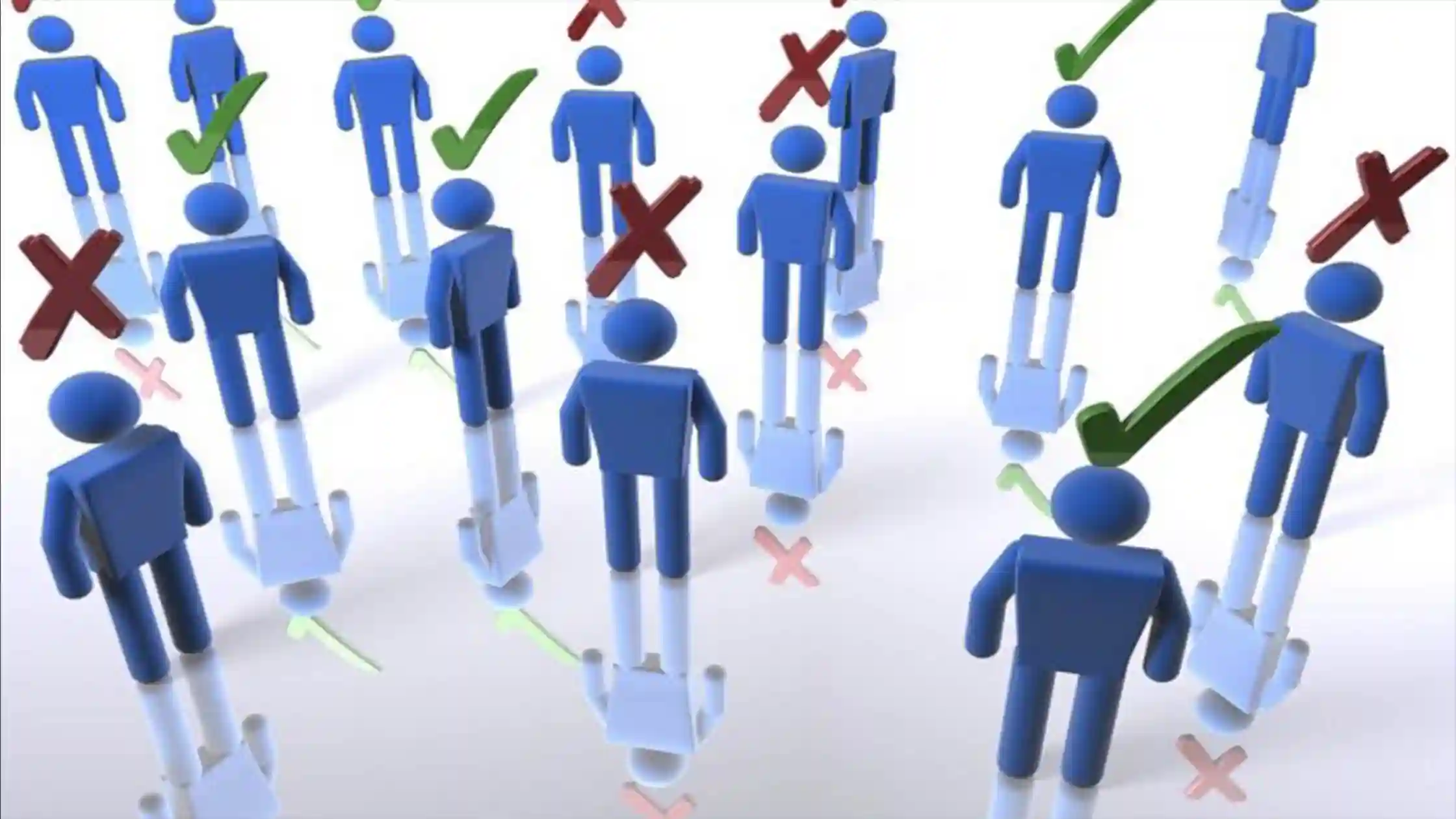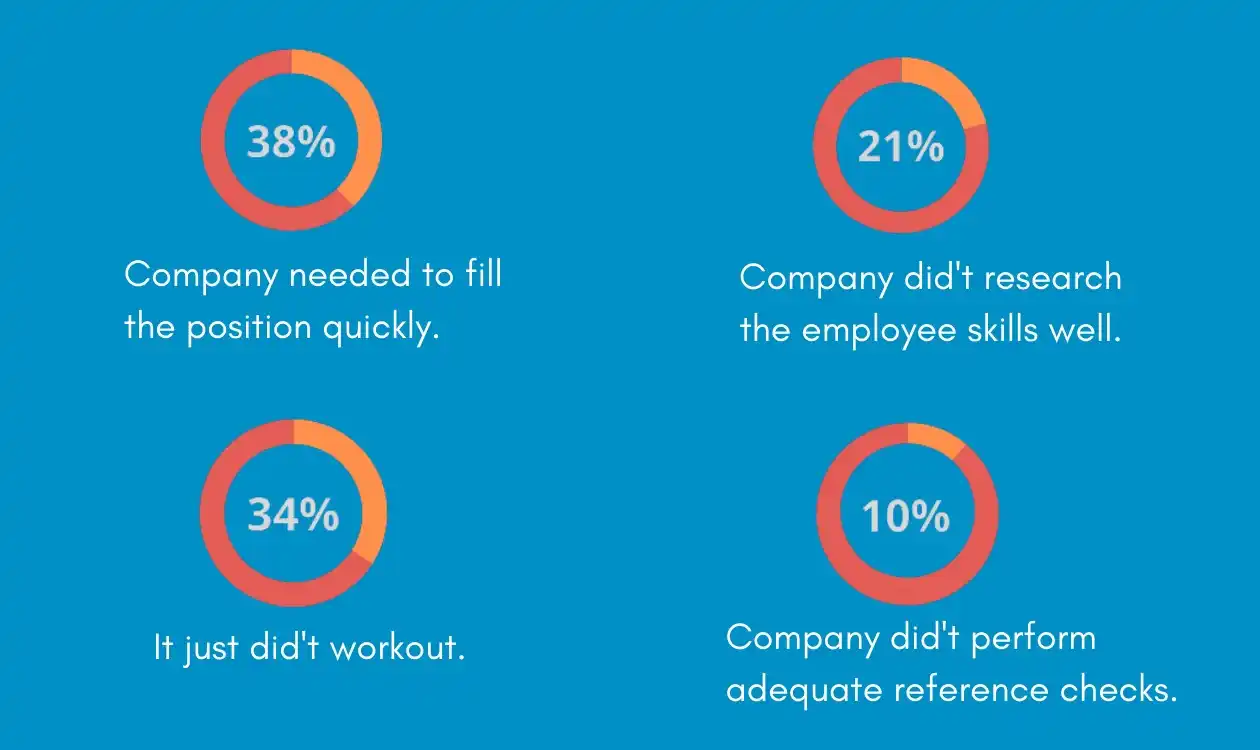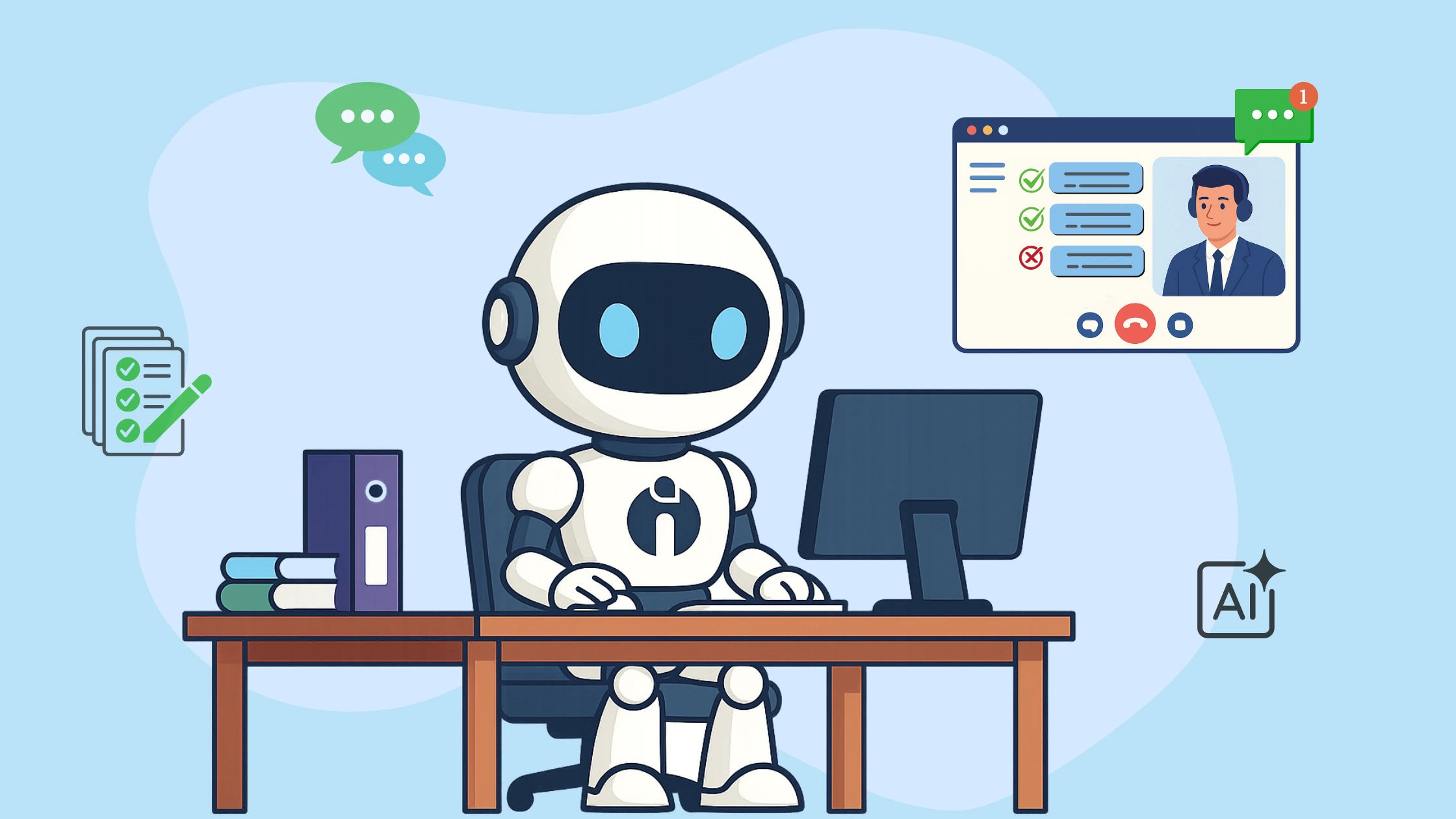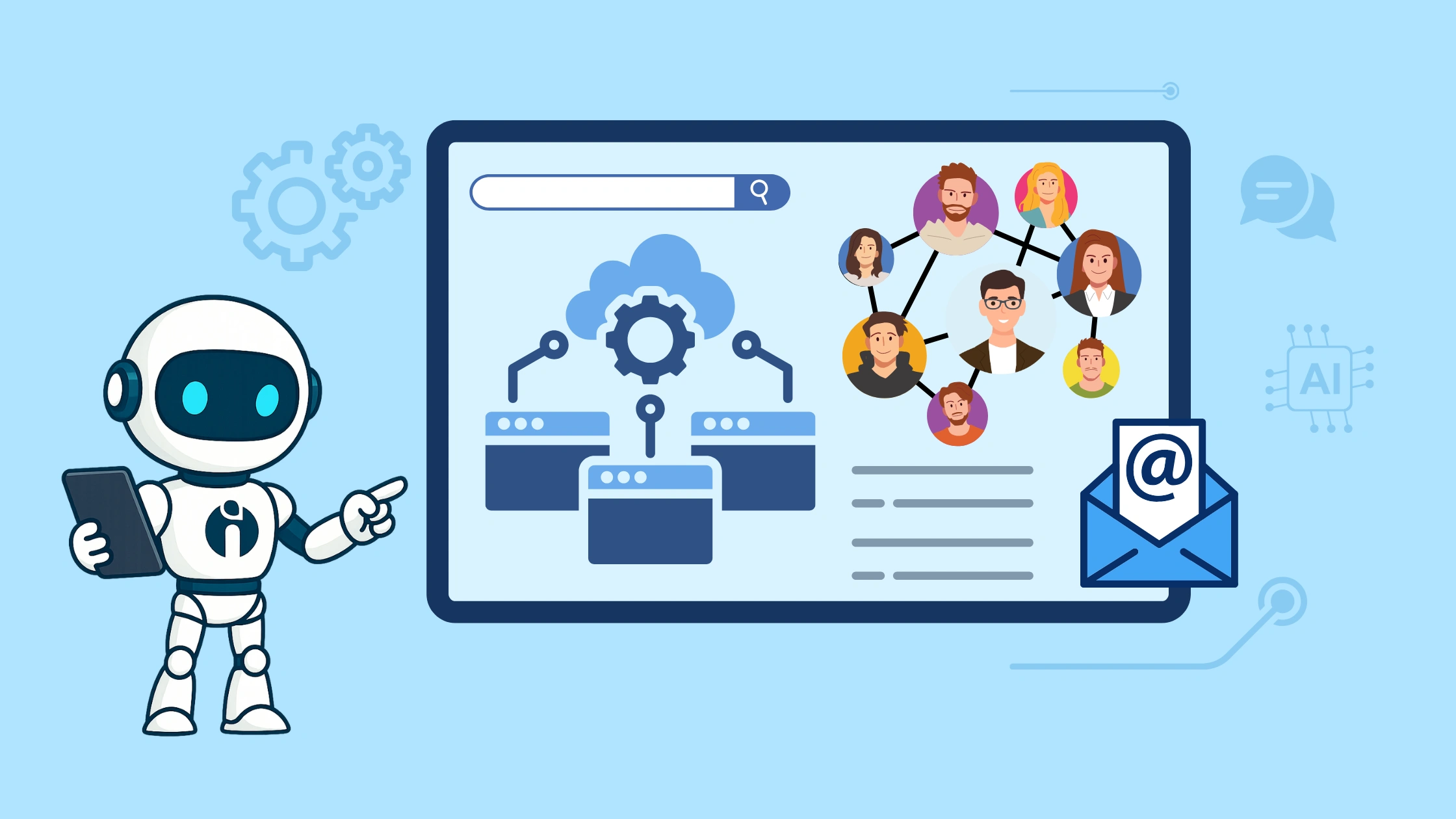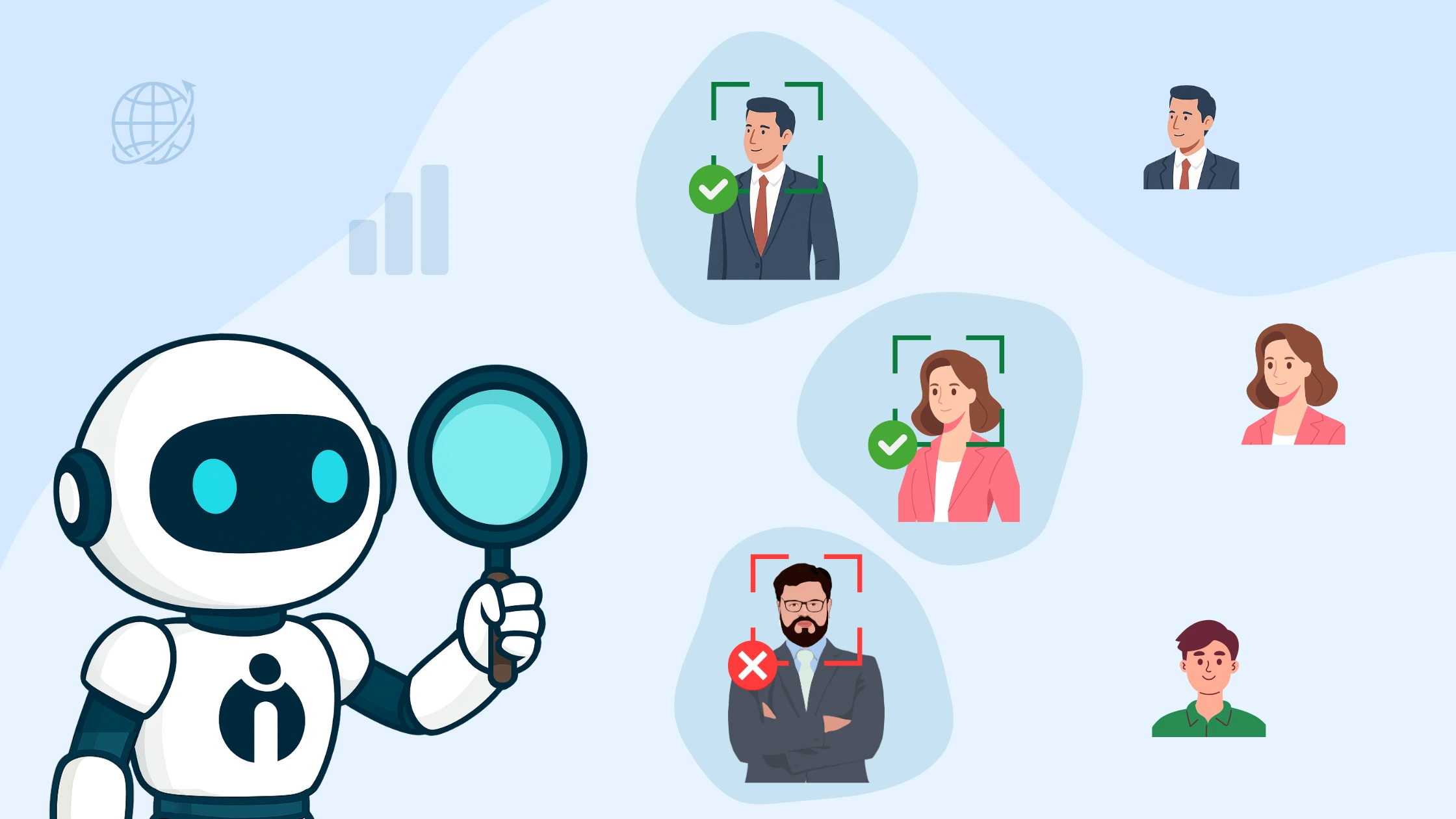TL;DR
- Bad hires can cost businesses over £13,500 and harm productivity, morale, and client relationships.
- Signs of a bad hire include underperformance, poor teamwork, resistance to feedback, and culture mismatch.
- Smart recruitment practices include clear job descriptions, structured interviews, assessments, and reference checks.
- Using AI-powered recruitment technology helps automate screening and identify potential bad hires early.
- Be vigilant for red flags such as unexplained employment gaps, job-hopping, and negative comments about previous employers.
- Develop a data-driven recruitment strategy focused on candidate experience, diversity, and continuous improvement.
- If a bad hire is made, provide clear feedback, consider role changes, or part ways respectfully if necessary.
Hiring the right people is more critical than ever in 2026. With the increasing costs of recruitment and the competitive nature of the global job market, bad hiring decisions can seriously impact your organisation’s productivity, morale, and bottom line. This guide will help you understand how to avoid bad hires, adopt smart recruitment practices, and build a workforce that drives results.
Why Avoiding Bad Hires Matters More Than Ever?
According to a study by the Society for Human Resource Management (SHRM), the average cost of a bad hire can exceed £13,500 (approx. $17,000) when considering onboarding, training, and lost productivity. Another report by CareerBuilder revealed that 74% of employers admitted to hiring the wrong person for a position.
These stats are not just numbers - they're a call to refine your recruitment strategy for 2026. In an era of fast-paced talent acquisition and increasing expectations from new hires, making the wrong choice can set your business back months.
A bad hire can have ripple effects beyond the individual role. In some cases, it can stall product development, delay launches, or create friction between departments. The earlier you can identify and prevent a hiring mismatch, the better positioned your company is to grow sustainably.
What is a Bad Hire?
A bad hire refers to an employee who does not meet the job expectations, misaligns with company values, or causes disruptions to the team or workflow. These individuals may look promising on paper or perform well in interviews, but fail to deliver results or integrate into your team culture.
Bad hires aren’t always due to incompetence. Sometimes, they stem from unclear job expectations, rushed decisions, or poor role fit. For example, hiring a highly independent worker into a tightly collaborative team without onboarding support could create conflict and disengagement.
Signs of a Bad Hire:
- Consistent underperformance
- Poor communication or teamwork
- Resistance to feedback
- Mismatch with company culture
- Lack of accountability or initiative
Identifying these signs early can help you intervene before problems escalate. Spotting and addressing a bad hire early can reduce long-term fallout and protect team cohesion.
The Cost of Bad Hires: A Deeper Look
Beyond direct salary losses, the cost of bad hires includes:
- Time wasted by HR and managers
- Decline in team morale
- Damaged client relationships
- Missed business opportunities
When a bad hire remains in place, their underperformance often requires others to pick up the slack. This causes stress, burnout, and resentment among high-performing team members. In sales roles, for instance, one poor performer can result in lost deals or missed quotas. In customer-facing roles, reputational damage may linger even after the hire is gone.
Companies that fail to act quickly may also suffer retention issues, as good employees leave due to toxic environments created by bad hiring decisions.
In larger organisations, these poor hiring decisions can snowball. In startups or SMEs, however, even one wrong hire can threaten survival. Understanding the full spectrum of damage underlines why businesses must invest in better hiring practices.
How to Avoid Hiring Mistakes: Proven Strategies
Implementing best practices for avoiding bad hires can significantly improve your recruitment outcomes. Here’s how:
1. Create Accurate and Honest Job Descriptions
Clearly define:
- Role responsibilities
- Required qualifications
- Performance expectations
- Reporting lines
Avoid buzzwords or vague language that attracts unqualified applicants. Be transparent about expectations, work environment, and any unique challenges the role presents. This sets the tone for better alignment.
2. Use Structured Interviews
A consistent format allows you to:
- Evaluate all candidates fairly
- Compare responses more effectively
- Spot red flags when hiring (e.g., blame-shifting or vague answers)
Use scorecards to rate skills, attitudes, and behaviours. Involving multiple interviewers with diverse perspectives helps mitigate unconscious bias.
3. Incorporate Pre-Hire Assessments
Test:
- Technical and cognitive skills
- Personality and culture fit
- Problem-solving abilities
Use tools that offer predictive hiring analytics to reduce bias and improve accuracy. Consider simulation-based tasks to assess real-world applications rather than hypothetical answers.
4. Conduct Behavioural and Situational Interviews
Ask real-world scenarios like:
- "Tell me about a time you failed and how you handled it."
- "What would you do if a team member missed a deadline?"
These questions reveal mindset, responsibility, and adaptability - critical factors in how to hire the right employee. Focus on evidence of accountability, growth, and alignment with your organisation’s mission.
5. Prioritise Culture Fit (but don’t overdo it)
Aligning values is important, but avoid cloning your team. Diversity in thought, background, and approach often improves innovation. Ensure your hiring panels reflect varied voices to assess fit from multiple angles.
6. Use Smart Recruitment Technology
In 2026, AI-powered Applicant Tracking Systems (ATS) and smart sourcing tools can:
- Score candidates based on skills
- Automate screening questions
- Flag signs of a bad hire early
Platforms like iSmartRecruit help standardise your hiring pipeline while giving insights into candidate quality. Incorporating chatbots, automated reference checks, and CRM integration streamlines hiring and improves accuracy.
7. Always Check References
Speak to former managers directly, not just colleagues. Ask open-ended questions like:
- "Would you rehire this person?"
- "What areas did they need support in?"
Well-done reference checks often validate (or contradict) interview impressions. Don’t skip this step due to urgency.
Red Flags When Hiring: What to Watch For
Hiring mistakes often show early warning signs during the recruitment process. Here are some of the most common red flags when hiring:
- Gaps in employment without explanation
- Job-hopping (less than 1 year at multiple roles)
- Overemphasis on salary over growth
- Negative comments about previous employers
- Lack of curiosity about the role or company
If a candidate shows up to an interview unprepared, has a vague understanding of your company, or cannot articulate past achievements clearly, it's worth taking a closer look. While one red flag may not be cause for concern, multiple indicators should prompt deeper assessment or further verification.
Always balance these red flags with context and probe further before making assumptions. For instance, frequent job changes may be justified in contract-based industries, but should still be discussed.
Building a Recruitment Strategy for 2026
An updated recruitment strategy for 2026 focuses on:
- Data-driven decision making
- Candidate experience
- DE&I (Diversity, Equity, and Inclusion)
- Employer branding
- Predictive analytics
Start with auditing your current hiring funnel: Are you attracting the right talent? Are interviewers aligned in their evaluations? Is your job ad copy inclusive and optimised for search?
Next, incorporate candidate feedback to improve your hiring process. Collect insights post-interview to identify gaps and opportunities.
Using metrics like time-to-fill, cost-per-hire, and quality-of-hire allows you to continually reduce bad hires and improve retention. Organisations embracing this model not only avoid hiring mistakes but also build stronger employer brands.
What If You’ve Already Made a Bad Hire?
Not every bad hire is a dead end. Here’s what to do:
1. Provide Clear Feedback
Use performance reviews and 1:1 meetings to highlight issues and set goals. Be specific, timely, and action-oriented. Document conversations and set follow-up checkpoints.
2. Offer Coaching or Role Change
Sometimes the issue is role fit, not potential. Redeployment can save an otherwise good employee. Evaluate their strengths and see if there's a better internal opportunity aligned with their skills.
3. Know When to Let Go
If there's consistent misalignment, it's better to part ways early than let damage compound. Have a clear offboarding process that is fair and respectful. Exit interviews can provide valuable insight into what went wrong.
Being proactive and empathetic during this stage preserves your culture and sends a strong message to your team about performance and accountability.
Final Thoughts: Hire Smart, Grow Strong
The real success of a company lies in its people. No matter how strong your product or service is, the wrong people in key roles can stall momentum and damage your brand. Conversely, the right people not only drive growth but also contribute to innovation, culture, and resilience.
By focusing on smart recruitment, implementing robust processes, and learning how to avoid hiring mistakes, you position your organisation to scale sustainably and reduce costly missteps. Every hiring decision should be grounded in clarity, consistency, and candidate quality.
In 2026 and beyond, avoiding bad hires is no longer optional - it's essential to remaining competitive, agile, and future-ready.
Quick Checklist: 5 Steps to Avoid Bad Hires
-
Define clear and honest job expectations
-
Use structured interviews and assessments
-
Look for red flags during the hiring process
-
Embrace smart recruitment tools and technology
-
Continuously improve your recruitment strategy based on results
Frequently Asked Questions (FAQs)
1. What are the consequences of hiring the wrong person?
A bad hire can lead to reduced productivity, lowered team morale, increased turnover costs, and reputational harm. The financial cost alone can exceed £13,500 per hire.
2. How can HR avoid bad hires in 2026?
Use structured interviews, smart screening tools, assessments, reference checks, and data-backed hiring strategies to reduce hiring errors.
3. What are the top red flags to watch for when hiring?
Watch for vague answers, poor communication, job-hopping, salary focus, or negative talk about past employers. These may signal future issues.
4. How do you recover from a bad hire?
Offer feedback, consider redeployment, or exit early if misalignment persists. Learn from the experience to refine your process.
5. Why is smart recruitment important in 2026?
With increasing hiring costs and talent competition, smart recruitment ensures long-term fit, lowers turnover, and improves business outcomes.
6. What technologies help avoid bad hires?
AI-based Applicant Tracking Systems, pre-hire assessment tools, candidate scorecards, and automated screening software can significantly reduce hiring risks by using data to inform decisions.








